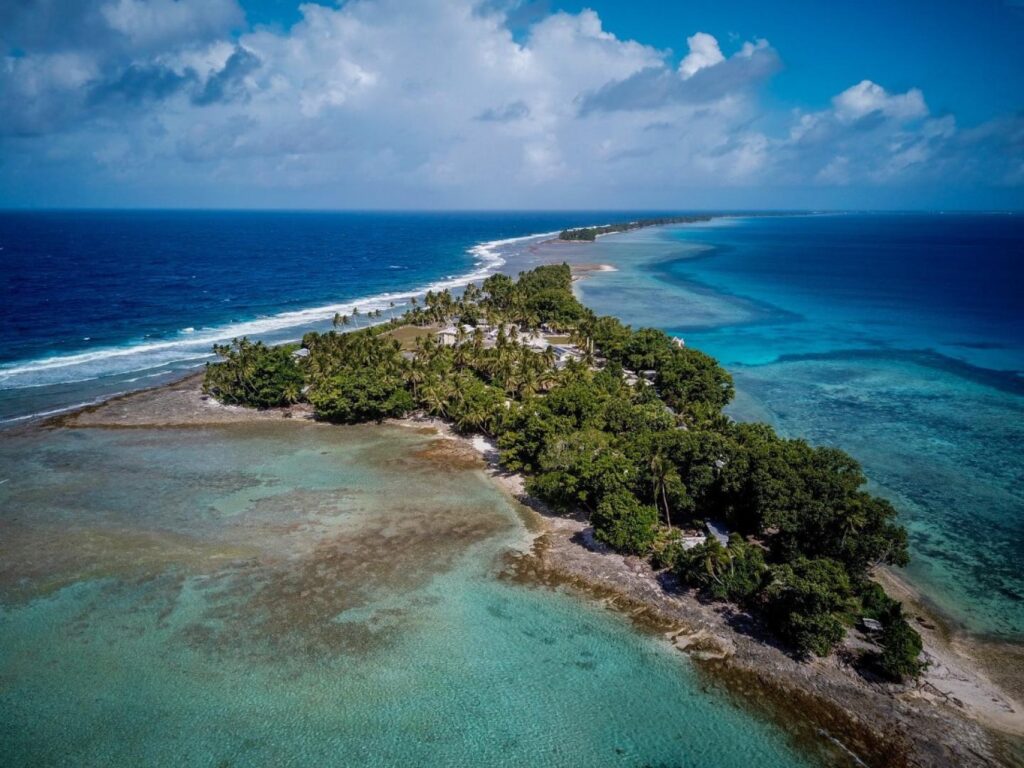Ahead of the Fourth International Conference on SIDS (SIDS4), to be held in Antigua and Barbuda from May 27 to 30,NumberA new policy brief from the United Nations Development Programme (UNDP) highlights the urgent need for large-scale investments in climate adaptation in Small Island Developing States (SIDS) to break the costly cycle of disasters and recovery. The document also calls for a fairer and more effective global financial system to support climate-vulnerable economies.
The problem of “disaster response” cycles, in which countries continue to play fiscal and financial catch-up to recover from new climate change-related crises, is particularly acute in SIDS countries, which are highly vulnerable to floods, sea level rise, hurricanes and other climate emergencies. SIDS countries face a significant challenge in breaking this cycle by increasing investments in climate change adaptation that will provide long-term resilience to the impacts of global warming.
However, securing the financing needed for projects such as seawalls and climate-resilient agriculture is difficult due to their high costs and severe debt vulnerability. Small island developing states are estimated to need between $4.7 billion and $7.3 billion per year for adaptation, but many countries are struggling with high debt burdens, complicating efforts to fund these vital measures.
“Most SIDS countries are unable to mobilize the upfront financing needed to adapt to the climate crisis, forcing them to divert an ever-increasing share of public resources to post-disaster reconstruction. Annual economic losses for SIDS countries from such disasters are estimated at 2% of GDP on average, four times higher than those suffered by larger countries, and some countries are at risk of suffering annual losses of more than 10%. SIDS countries illustrate the challenge for the international financial architecture to be more responsive to and supportive of the needs of developing countries in responding to the climate crisis,” said UNDP Administrator Achim Steiner.
In its policy brief, “Breaking the disaster response cycle in SIDS: Adjusting financing for urgent climate action,” UNDP outlines some of the key changes needed to effectively address these challenges, including improving access to effective and climate-smart debt treatment for countries in need, introducing and improving innovative financing instruments, and accessing more long-term, affordable finance from the official development sector.
The policy brief supports greater incorporation of climate considerations in debt sustainability assessments and argues that innovative debt instruments such as sovereign bonds, thematic bonds and debt-to-development swaps, if well designed and applied, can help countries better cope with the impacts of climate change by providing liquidity when needed and enabling investments in long-term resilience. Furthermore, the policy brief argues that the official development sector needs to significantly expand its lending capacity to provide long-term, affordable financing for the climate transition, including adaptation investments that are difficult to finance through private capital.
“Large-scale adaptation investments are crucial for Small Island Developing States (SIDS), most of which are middle-income countries and contribute minimally to global emissions. These countries need greater access to affordable finance on affordable terms, improved liquidity support in the event of climate-related shocks, and more direct paths to debt relief,” said UNDP Principal Economist George Gray Molina.
The policy brief concludes that investing in adaptation can have multifold benefits, with cost-benefit ratios ranging from 1:2 to 1:10 depending on the country and measure of resilience. Moreover, investing in adaptation not only saves on costly recovery expenditures and reduces development trade-offs, but also helps lower borrowing costs as financial markets increasingly price in countries' climate change exposure and preparedness.
/Public Release. This material from the originating organization/author may be out of date and has been edited for clarity, style and length. Mirage.News does not take any organizational stance or position and all views, positions and conclusions expressed here are solely those of the authors. Read the full article here.


